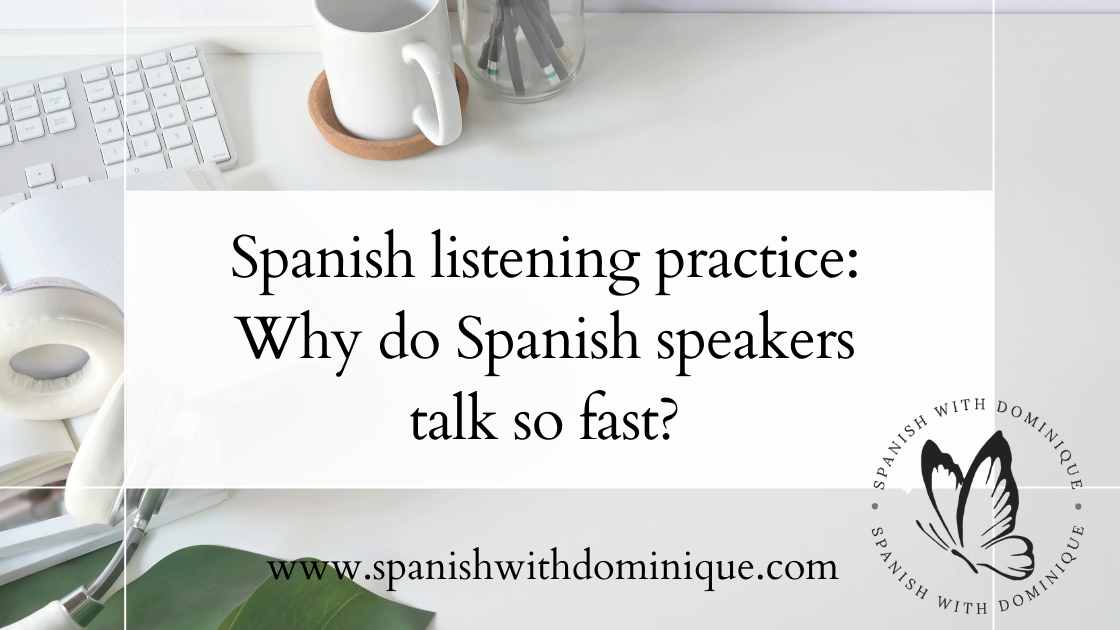How Selena Quintanilla Learned Spanish as an Adult
Did Selena Speak Spanish? Here’s what the Grammy-winning Tejano superstar had to say in her own words:
"I feel very proud to be Mexican. I didn't have the opportunity to learn Spanish when I was a girl, but it's never too late to get in touch with your roots."
Selena Quintanilla didn’t grow up fluent—she learned Spanish as an adult.
You may already know that Selena rose to fame in the 90s before she was tragically killed. Yet, she remains an endless source of inspiration.
Selena became a trailblazer as a young woman breaking into a largely male-dominated music scene. And she did so without shying away from crossing music genres or embracing her biculturalism.
Although many of her songs were in Spanish, Selena grew up as a 3rd Generation Mexican-American and learned to speak Spanish as a young adult.
Many of us with Latino roots are in the same boat. Being born into a family of Spanish speakers does not guarantee you’ll pick up Spanish.
But Selena is proof you don’t have to learn Spanish as a child to be fluent later in life. You can learn Spanish as an adult. And that experience can be life-changing. Whether Spanish is a heritage language or just a language you feel connected to.
As a 3rd generation Puerto Rican, Selena’s story has inspired me and reminded me that I could learn Spanish as an adult, embrace my cultural heritage on my own terms, and define who I want to be as a Spanish-speaking adult.
Read for inspiration and actionable ways to build Spanish fluency as an adult. We’ll talk about how you can use authentic Spanish learning materials to add meaning to your learning. I’ll even share some of my favorite resources (think celebrity reading, playlists, and a few other surprises) to keep you practicing and passionate.
Oh, and we’ll be doing some serious celebration of Selena’s life and songs as well.
Learn Spanish Like Selena (Embrace Your Biculturalism)
Learning Spanish as an adult can bring up complex emotions — especially for those of us who are bi-cultural or learning Spanish as a heritage language (a language spoken by our families). It’s so easy to feel pushed and pulled in different directions.
You can feel a sense of warmth and belonging around Spanish, a language you may have grown up hearing. And, at the same time, you can harbor a quiet sense of guilt at not having really learned to speak Spanish the way you might have liked. A feeling that something is missing. (Nobody knows this better than Jennifer Lopez.)
Depending on your own complex and unique experience, Selena’s example might be just the inspiration you need to get started.
Commit to Learning Spanish, and Incredible Things Happen.
Learning a second language as an adult can lead to frustration and even embarrassment.
Many of us have our own embarrassing Spanish stories to tell. You can probably appreciate how it must have been when Selina and her husband (and guitarist) Chris Perez decided to go on tour in Mexico and mix language learning with being in the spotlight.
In fact, in this excerpt from the book Selena with Love, Perez details his embarrassing first attempt at interviewing in Spanish in Monterrey:
“Despite my good intentions and all of that practicing, I still managed to humiliate myself. During our first interview with the radio DJs in Monterrey, we all had to go down the line and introduce ourselves, just as we’d practiced. I froze up completely. When it was my turn, I said ‘toca’ instead of ‘toco,’ essentially saying, ‘My name is Chris Perez, and he plays the guitar.’ Naturally, everyone laughed at my expense.”
- Chris Perez
In Mexico, Selena stumbled through her conversations in Spanish like the rest of us. So, how did Selena learn Spanish as an adult?
She took her challenges and turned them into commitment.
Here’s Selena in her own words:
“It’ll be cool. You watch. I’m going to learn Spanish and surprise everybody.”
In Mexico, Selena mangled her conversations in Spanish like the rest of us, but not for long. She said, “It’ll be cool. You watch. I’m going to learn Spanish and surprise everybody.”
Despite the struggles and pressures inherent in touring, performing, and interviewing in Spanish, Selena eventually managed to sound like a natural — you can see what I mean in this inspiring interview.
The spotlight on her career and achievements intensified her challenges, but Selena also had one thing that carried her through:
Her commitment to Spanish was on the same level as her commitment to her family, her career--her identity. It allowed her to bring her music across the border to an audience in Mexico.
And it helped her learn Spanish.
This commitment to Spanish, intertwined with her other life commitments, allowed her to bring her music across the border to an audience in Mexico.
One of the most powerful things you can do for your Spanish learning is simply to take stock of your most profound reasons for wanting to learn the language. Is it a connection with family, patients, clients, or a local community? Is learning Spanish ‘just’ a life-long dream?
Those reasons will help you find your own commitment to Spanish.
Take It from Selena: 3 Spanish Learning Tips You Can Use.
As someone who learned Spanish as an adult and has worked with many adult language learners, I have a few favorite strategies inspired by Selena Quintanilla’s language journey.
Balance Learning Spanish with Your Real Life.
Any of us can relate to feeling too busy to learn Spanish. But we can take inspiration in the fact that Selena had a lot going on with her music, touring, performing — and still managed to learn to speak Spanish as an adult.
If you’re an adult with a busy life, career, and family obligations, try a trick from Selena’s strategy and integrate Spanish into your routine and life.
Is there a habit you have that you can’t imagine letting go of? Something you do every day, like reading the paper or listening to the radio? Can you add Spanish to that moment?
In other words, you’d be using habit stacking, an incredibly powerful strategy that I swear by when I’m truly committed to an outcome — like making Spanish a part of my life.
Maybe for you, that means listening to slow news in Spanish on your drive to work or running through a few flashcard sets during those few quiet minutes as you drink your morning coffee before the kids wake up.
Find something small, something you can pick up and add to your life so you can practice Spanish consistently. Make it something you can do again and again — without losing touch with what matters to you.
Tap into Hidden Spanish Learning Strategies: Sprints & Culture
Selena made many, many trips on tour to Mexico. In a sense, these were what I call language sprints. Periods of more intense training where you return with a renewed level and can see your language “jumping up a notch,” as Chris Perez describes Selena’s progress on these trips to Mexico.
And no, you don’t have to travel to a Spanish-speaking country to see your level of Spanish improve. You could also choose to spend a few weeks or a few months pushing yourself in your Spanish. You can set up your own Spanish sprint at home — by gathering the right materials and setting up your own routine.
Dive into authentic Spanish experiences.
Tap into the things you love, the people around you, and whatever helps connect you with the culture.
Have you ever wondered who taught Selena Spanish?
Selena practiced her pronunciation with her father. He also taught her to sing in Spanish and play in the family band. Talk about an authentic learning experience.
Is there anyone in your life who inspires you to want to learn Spanish? Maybe you can try spending more time with them.
Selena practiced her pronunciation with her father. Is there anyone in your life who inspires you to want to learn Spanish? Maybe you can try spending more time with them.
There is a scene in the Netflix series about Selena’s life where she is trying to learn Spanish from some dry, learning materials. The kind of materials that would probably make you feel truly alienated trying to learn a heritage language — or a language people speak locally and that you long to learn.
Selena shuts off her Spanish recording in that same scene and switches on a telenovela instead.
Maybe that’s not exactly how it happened in real life, but there is one thing that may feel real to you:
Spanish learning materials should help you feel a true connection to the culture. Whether Spanish is a language of your family or simply a language you want to embrace and bring into your life, don’t settle for anything less.
Find a podcast that helps you follow real people's discussions and join the culture a little bit every day. Watch a great Netflix series in Spanish. Or read a Spanish-language biography of your favorite pop star (here’s one on Selena).
When you pick up authentic Spanish materials like a great Mexican film or a must-read Mexican book?
An entire world of Spanish-speaking people is reading, watching- or singing alongside you. There’s no better way to feel like you’re part of the culture.
This brings me to one final lesson I hope you’ll never forget from Selena Quintanilla…
A Final Lesson From Selena: Learn Spanish with Music!
Music is a beautiful blend of language and culture. It can connect us to our past, and our families and helps us create shared moments across borders.
Singing along with the right song in Spanish can help you find your passion for the language.
I wholeheartedly encourage you to practice your Spanish comprehension skills by listening to music you love in Spanish and practice your speaking skills (pronunciation, fluency) by singing along with Selena--or whoever else inspires you.
Find a simple Spanish song you can nail at karaoke--even as a beginner. You’ll connect emotionally to the culture through its rhythms, words, and intonations.
Or add one of Selena’s songs to your playlist as a reminder that you can be unstoppable in Spanish.
Here are three of Selena Quintanilla's most famous songs:
Bidi Bidi Bom Bom
Learning Spanish as an Adult—Selena’s Story & Yours.
I hope you’ve enjoyed exploring Selena Quintanilla’s story and that you can appreciate her songs that much more.
Or, simply take inspiration from a young woman who didn’t grow up speaking Spanish- but learned to be bilingual and unapologetically bicultural anyway.
If there’s one idea I hope you leave with today, it’s this: Spanish is not the dusty, boring contents of a textbook. Or another soulless Spanish class.
It’s a rhythm you set in place in your life. Something to care about and connect with.
And Spanish music will help you sing along, find your passion for the language, and learn something about yourself.
Remember, we started this post with a simple question:
How did Selena learn Spanish?
But I hope it gave you answers to an even bigger one:
How will you become the Spanish speaker you want to be?
More Blog Posts Handpicked Just For You!
Enjoyed this post? Here are a few more you might like.






Discover 7 must-read books for intermediate Spanish learners to boost fluency, overcome the plateau, and immerse yourself in engaging Spanish stories.